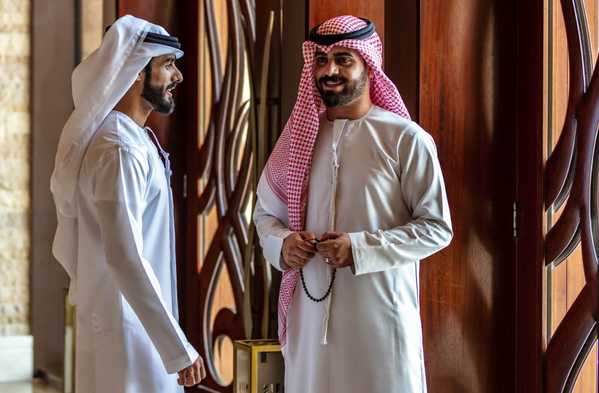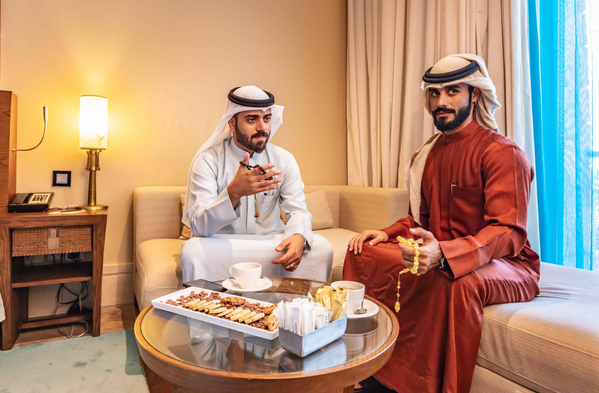









Egypt Fabric Market Import & Export - Egypt has a rich history of textile production that dates back to ancient times. Today, the country is known for its high-quality cotton and linen fabrics, which are in demand domestically and internationally. The Egypt fabric market is a thriving industry that contributes significantly to the country's economy. This blog post will provide all truthful information about Egypt's Fabric Market Import & Export.
Egypt is a net importer of fabrics, meaning that it imports more fabrics than it exports. According to the World Bank, Egypt imported $2.6 billion of textiles and clothing in 2019, while it exported $973 million of textiles and apparel. The textile and clothing industry is one of the largest employers in Egypt, providing jobs to millions of people. The sector accounts for about 3% of Egypt's GDP and 27% of its industrial output.
The top fabric imports to Egypt include cotton, synthetic, and wool fabrics. Cotton fabrics are the most imported fabric, accounting for over 50% of Egypt's total fabric imports. Egypt imports cotton fabrics mainly from China, India, and Turkey. Synthetic fabrics, such as polyester and nylon, are also popular imports, accounting for about 25% of Egypt's total fabric imports. These fabrics are imported mainly from China, South Korea, and Taiwan. Wool fabrics account for about 5% of Egypt's total fabric imports and are mainly imported from Italy, France, and Germany.
Egypt is known for its high-quality cotton and linen fabrics, which are in demand worldwide. The top fabric exports from Egypt include cotton fabrics, linen fabrics, and silk fabrics. Cotton fabrics are the most exported fabric, accounting for over 70% of Egypt's total fabric exports. These fabrics are exported mainly to Turkey, Italy, and Spain. Linen fabrics are also famous exports, accounting for about 15% of Egypt's total fabric exports. These fabrics are exported mainly to Italy, Belgium, and France. Silk fabrics account for about 5% of Egypt's total fabric exports and are primarily exported to Italy, France, and Spain.
The Egypt fabric market is facing several challenges that are impacting its growth. One of the main challenges is the increasing competition from other countries in the region, such as Turkey and India. These countries can produce fabrics at a lower cost, which makes it difficult for Egyptian producers to compete. Another challenge is the need for more investment in the textile industry, which has led to outdated technology and equipment. This has resulted in lower-quality fabrics that cannot compete with those produced in other countries.
Despite these challenges, several trends are driving the growth of Egypt's fabric market. One of the main trends is the increasing demand for sustainable fabrics. Consumers are becoming more aware of the environmental impact of textile production and are looking for fabrics that are made using sustainable practices. Egyptian producers are starting to respond to this trend by investing in sustainable production methods.
Another trend driving the growth of Egypt's fabric market is the increasing demand for luxury fabrics. Egyptian cotton is known for its high quality and is often used to produce luxury fabrics, such as high-end bed sheets and clothing. This has led to an increase in demand for Egyptian cotton and has helped to boost the country's fabric exports.
.jpg)
Several key players in Egypt's fabric market include government entities, textile companies, and trading companies. The Egyptian government plays a crucial role in the fabric market by setting policies and regulations that affect textile production and trade. The government also provides support to textile companies through subsidies and other incentives.
One of the key players in the fabric market in Egypt is Blossom Trading, a textile and clothing company based in Cairo. The company specializes in producing and selling a wide range of fabrics, including cotton, linen, silk, and wool, and it serves both domestic and international markets.
Blossom Trading is known for its high-quality fabrics, innovative designs, and competitive pricing, and it has a strong reputation for reliability and customer service. The company has a large and loyal customer base in Egypt and is well-respected in the industry.
The Egyptian government has implemented several policies and regulations that affect fabric trade in the country. One of the central policies is the imposition of tariffs on imported fabrics. This is done to protect domestic producers from competition from other countries. The government has also implemented policies encouraging textile companies to invest in sustainable production methods.
Another regulation that affects fabric trade in Egypt is the requirement for textiles to be certified by the Egyptian Organization for Standardization and Quality Control (EOS). This certification ensures that fabrics meet specific quality standards and helps to protect consumers from low-quality products.
Future Outlook for Egypt's Fabric Market
Despite the challenges facing Egypt's fabric market, several factors suggest a positive outlook for the future. One of the main factors is the increasing demand for sustainable fabrics, which is expected to grow in the coming years. Egyptian producers are well-positioned to take advantage of this trend and are starting to invest in sustainable production methods.
Another factor that suggests a positive outlook for the future is the increasing demand for luxury fabrics. As the global economy continues to recover from the COVID-19 pandemic, demand for luxury goods is expected to increase, which could lead to increased demand for Egyptian cotton and other luxury fabrics.
In conclusion, the Egypt fabric market is a thriving industry that offers several opportunities for foreign investors and traders. Despite the industry's challenges, several trends suggest a positive outlook. Businesses interested in entering the Egypt fabric market should consider investing in sustainable production methods and developing high-end fabrics that meet the needs of luxury consumers. They should also be prepared to navigate the policies and regulations that affect fabric trade in the country. With the right approach, businesses can be successful in Egypt's fabric market and contribute to the growth of this critical industry.










 Request a Callback !
Request a Callback !